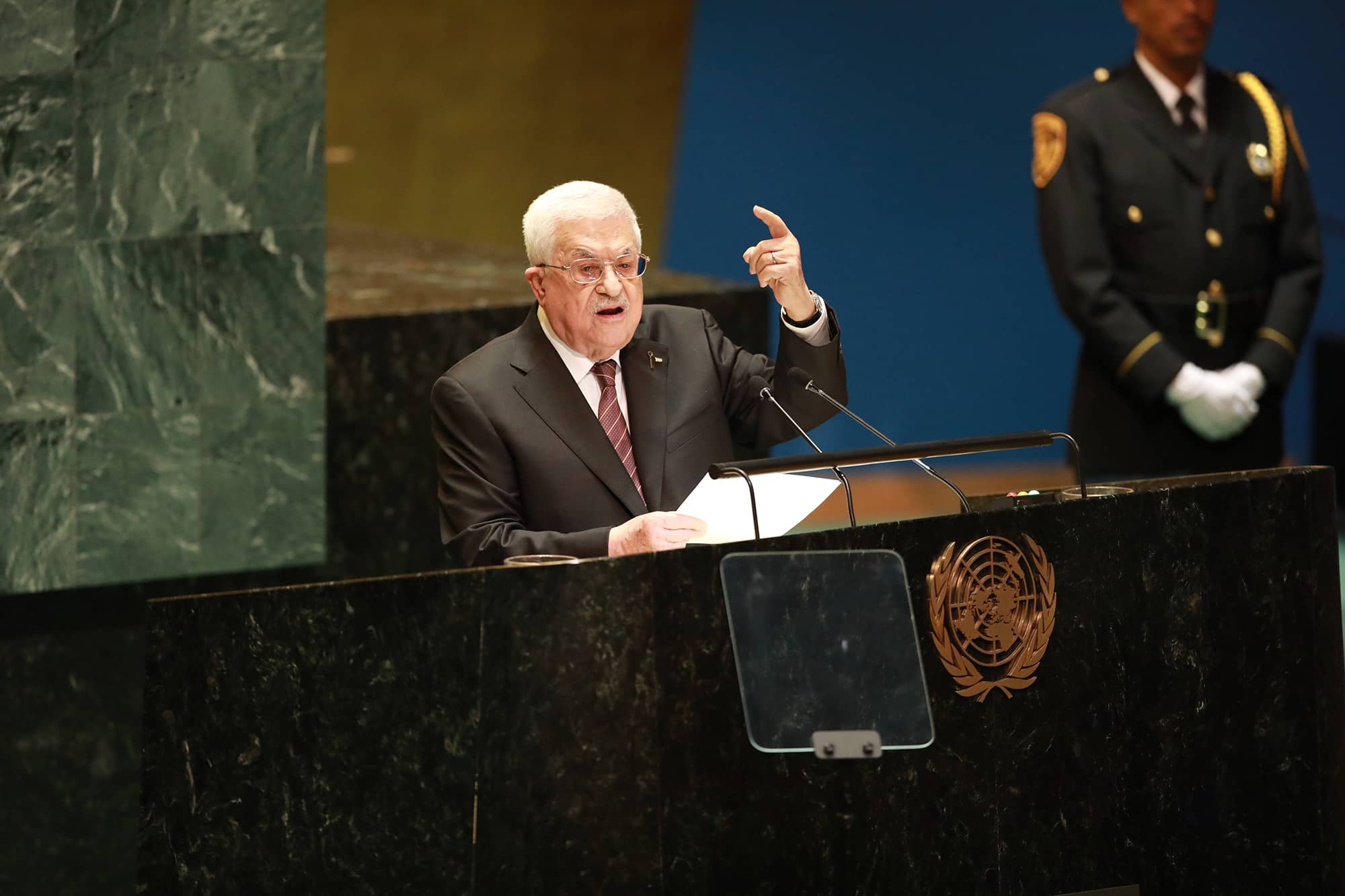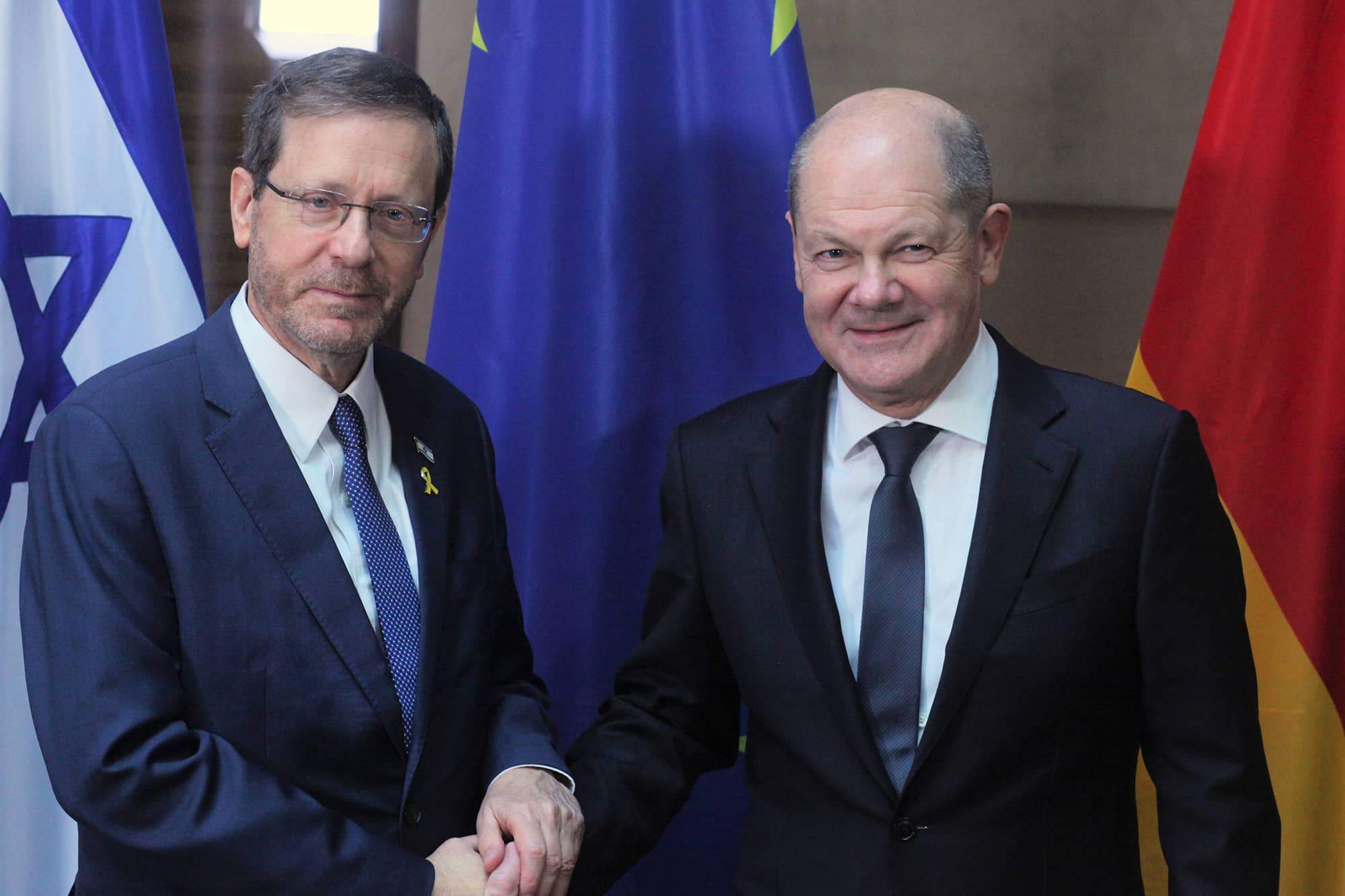Foreign and Nuclear Policy
The sixth round of talks between Iran and the United States on the nuclear issue took place in Rome on May 23-24, 2025. According to official statements and media reports, the main dispute between Iran and the United States regarding enrichment remains unresolved. The U.S. envoy to the talks, Steve Witkoff, clarified that the United States continues to demand the dismantlement of Iran’s enrichment capability,[1] however Iran has declared enrichment to be a red line. Nonetheless, some statements have indicated [2]cautious optimism on both sides: Iranian Foreign Minister Abbas Araghchi said that during the Rome talks, Oman, which is serving as a mediator, had proposed solutions to obstacles that had emerged, and that these solutions were under consideration.[3]U.S. President Donald Trump was more direct, saying, “We had very, very good talks with Iran,” and emphasizing that “we made real progress, serious progress” during the meetings.[4]
While U.S. administration spokespeople have stressed that time is running out and that the deadline given to Iran is short, the Iranians have sought to create the impression that they are in no hurry and that Iran will be able to cope even if the talks collapse—an implicit reference to sanctions and the possibility of an American and/or Israeli attack.
Against this backdrop, senior Iranian officials continue to express skepticism that the talks will succeed. Notably, Supreme Leader Ali Khamenei stated before the Rome talks, “We do not believe that the negotiations with the United States will yield results; the Americans’ talk about preventing Iran from enriching[5] is fundamentally wrong.” Referencing Khamenei’s remarks, Ali Shamkhani, an advisor to the Supreme Leader’s and a former chairman of Iran’s National Security Council, voiced support for the hardline stance, writing that U.S. threats ceased following Khamenei’s statement on Iranian policy.[6] Ayatollah Qomi, deputy for international affairs in the Supreme Leader’s office, said that “if the indirect negotiations between Iran and the United States do not achieve results, it will be the fault of the United States, because it has unreasonable demands and states that Iran must not possess enrichment capabilities.”[7]
The conservative press in Iran also continues to serve as a right-wing benchmark, expressing a tough and skeptical stance toward the talks.[8]The daily newspaper Kayhan, whose editor is close to the Supreme Leader, continues to lead a hawkish line. In a recent opinion column, the paper accused the United States of increasing pressure on Tehran as a negotiating tactic by imposing additional sanctions. The talks, the writer argued, are no more than a cover for the American intention to escalate.[9]
Fereydoon Abbasi, the former head of Iran’s Atomic Energy Organization, also adressed the negotiations, saying that Tehran could produce a nuclear bomb as soon as it chose to do so.[10]
In parallel with the talks with the United States, Iran also held talks on May 16 with the E3 countries—Germany, France, and Britain—who have threatened to reactivate the JCPOA’s snapback mechanism, namely the reimposition of United Nations Security Council sanctions against Iran.[11]Araghchi warned that if the snapback mechanism is triggered, Iran’s response will be harsh.[12]
Military and Security
In parallel with the nuclear talks, doubts about their success, and reports of Israeli preparations to strike Iran’s nuclear sites,[13] the Iranian leadership continues to issue stern warnings against any potential attacker.[14]IRGC Commander Hossein Salami also addressed the sensitive security situation, saying that Iran is facing “global enemy formations on the political, economic, and military levels.” Salami stressed that Iran’s enemies are fighting it on many levels and with many means.[15]In recent weeks, senior commanders in Iran have combat readiness inspections in air defense units along the country’s western border, as well as at one Iranian air force base.
Iran’s relations with Azerbaijan:
Iran and Azerbaijan held joint military exercises in the Karabakh region,[16]following Iranian President Masoud Pezeshkian’s visit to the country on April 28, 2025. It [17]should be noted that relations between Iran and Azerbaijan have experienced fluctuations, especially over Baku’s close ties with Israel and Turkey, and Iran’s close ties with Armenia.[18] The existence of a large Azeri minority in Iran also remains a point of tension between the countries (President Pezeshkian himself is a member of the Azeri minority).
The Socioeconomic Arena
- Protests and Strikes
The truck drivers’ strike in Iran:
On May 20, truck and heavy vehicle drivers in Iran launched a strike that is ongoing at the time of writing. The drivers halted work in protest against deteriorating living conditions. According to reports, regime security forces attacked some of the demonstrators and arrested several drivers in an attempt to suppress the strike.[19]
Violence against bakers demonstrating in Mashhad:
Bakers across Iran also held protests due to the high cost of living and recent price increases. In the city of Mashhad, protesting bakers were met with violence by security forces sent to disperse the gathering. The protests indicate continued social unrest in Iran in light of growing economic distress.[20]
- Electricity Shortages
The electricity crisis and the discourse surrounding it are intensifying as the country approaches summer, when peak consumption is expected. This year’s crisis is considered more severe than in previous years due to drought conditions, which are impairing the power generation capacity of hydro-electric power plants. Consumption restrictions, already in placce for the private sector, are now expected to extend to the industrial and public sectors:
- Consumption restrictions have been imposed on the steel, cement, and mining industries. These measures prompted protests by the manufacturers’ unions in these sectors. Representatives even sent a letter of protest to the president, warning that restrictions woulh have a severe impact on production.[21]
- A spokesperson for the Ministry of Education said that as of May 13, all schools in the country must end the school day by 1 p.m., in order to conserve electricity.[22]
- In contrast, the Minister of Agriculture stated that the country’s agricultural sector would not be affected by electricity restriction, even during periods of grid imbalance leading to power outages.[23]
At present, Iranian authorities are prioritizing regular electricity supply to households at the expense of the public sector and parts of the business sector. Power cut policy is influenced to a great extent by political pressure with each sector attempting to spare itself from outages by exerting pressure on the government, which oversees the policy. It is not inconceivable that the restrictions will worsen as the crisis continues to deepen with summer approaching. This in turn could lead in the short and medium term to economic difficulties and shortages of various products.
- The Border Crisis
Significant activity by the armed forces in the province of Sistan and Baluchistan —which is predominantly populated by members of the Baluchi minority—is a focal point of ongoing unrest in Iran. As part of efforts to impose Tehran’s authority in the region, the Chief of Staff of the Armed Forces, Mohammad Bagheri, announced the completion of a perimeter fence along the province’s borders with Pakistan and Afghanistan. The fence is intended to prevent smuggling and unauthorized movement, including the infiltration of foreign national.[24] Bagheri visited the province and reviewed the operational readines of army units stationed there.[25]
One of the key motivations behind the construction of the border fence is increased migration from Afghanistan to Iran following the Taliban’s rise to power in 2021. According to a report by Iran’s Fars News Agency, approximately six million Afghans currently reside in Iran. In recent months, Iranian authorities have intensfied their efforts to repatriate them to Afghanistan –primarily through deportations and encouraging voluntary departure via a range of civilian sanctions.[26] In this context, the Iranian interior minister said that Iran “does not have the ability to accommodate [foreign] citizens.”[27]
In addition to the migration crisis, the regime is conducting enforcement operations in the Hormozgan province: On May 11, security forces raided the city of Qaleh on the shores of the Straits of Hormuz to apprehend fuel smugglers and disrupt smuggling operations in the area. A few days later, the Sunni Friday preacher of the city of Zahedan—the capital of Sistan and Baluchistan, which has a Sunni majority— condemned the raid, in which dozens of local residents were injured. He attributed the prevelance of smuggling in the reggion to the dire economic conditions faced by its inhabitants.[28]
Human Rights and Repression
The issue of the hijab law has once again made headlines. The head of the Majlis Culture Committee warned the president that following the law’s approval by the Majlis and the Guardian Council, the government must act to implement through the appropriate enforcement mechanisms. He added that if the president does not act, the speaker of the Majlis would take actions in his place.[29] Meanwhile,text messages sent in early May to women accused of violating the hijab law[30]continue to generate a strong reaction among the Iranian public— though their authenticity is unclear. On May 9, for example, the Asr-e-Iran newspaper published a sharply worded piece on the need to enforce hijab violations as a crime, rather than encouraging hijab observance through incentives and concessions.[31]
Against the backdrop of the hijab controversy, the Minister of Interior stated during a May 21 press conference that the government’s goal is to “prevent social problems from turning into security problems” [32](namely, to prevent social disputes from turning into protests threatening the stability of the regime). This statement clearly reflects the agenda of the current government, which is one of Iran’s more moderate political factions and advocates public engagement over the imposition of authority. Another indication of the Iranian establishment’s fear of a further social crisis can be found in the statement of the Speaker of the Majlis, Mohammad Bagher Qalibaf who revealed that according to a written directive from the Supreme National Security Council, hijab law cannot be announced at this stage.[33]
Politics
Tension between the factions over the one-year anniversary of President Raisi’s death:
Political tensions between Iran’s conservative and reformist factions have sharpened over the past two weeks as the country marks the first anniversary of the death of President Ebrahim Raisi in a helicopter crash in 2024. The commemoration events have become a political arena in which the conservative faction has seized the opportunity to criticize, indirectly, and sometimes explicitly, the current government headed by President Masoud Pezeshkian. The conservatives view his administration as reformist, moderate, and even pro-Western.
During the ceremonies, in official speeches, and in conservative-affiliated media, senior regime officials praised Raisi’s legacy—particularly his steadfastness in the face of international pressure, his loyalty to revolutionary values, and his promotion of the so-called “resistance economy,” which favors self-reliance and opposition to sanctions over engagement with the West.
Conservatives also used the ocassion draw comparisons between Raisi’s government of Raisi with that of his predecessor Hassan Rouhani and with Pezeshkian’s current government, emphasizing differences in economic and political approaches. The conservatives describe Raisi as acting “for the people and not for the elites,” in contrast to Rouhani and Pezeshkian, who they accused of prioritizing rapprochement with the West while neglecting the hardships faced by ordinary Iranians.
Some critics went further, attacking the Pezeshkian administration’s efforts to reopen dialogue with the United States and Europe over the nuclear deal, calling such attempts a dangerous illusion.
[1] https://www.reuters.com/world/middle-east/trump-envoy-witkoff-cites-us-red-line-with-iran-against-uranium-enrichment-2025-05-18/
[2] https://www.isna.ir/news/1404022718930
[3] https://farsnews.ir/akramsharifi/1748195947462162837
[4] https://www.timesofisrael.com/trump-says-us-saw-real-progress-in-latest-talks-with-iran-predicts-good-news-ahead/
[5] https://www.tasnimnews.com/fa/news/1404/02/30/3317077
[6] https://x.com/alishamkhani_ir/status/1926679816226357513
[7] https://www.mehrnews.com/news/6478931
[8] https://kayhan.ir/fa/news/311409
[9] https://kayhan.ir/fa/news/311487
[10] https://x.com/TMiddleEastern/status/1926599718911549846
[11] https://www.france24.com/en/middle-east/20250516-iran-european-powers-meet-amid-tensions-over-nuclear-deal
[12] https://www.tasnimnews.com/fa/news/1404/03/04/3321023
[13] https://edition.cnn.com/2025/05/20/politics/intelligence-israel-possible-strike-iran-nuclear-facilities
[14] https://www.entekhab.ir/fa/news/867550
[15] https://www.tasnimnews.com/fa/news/1404/03/04/3320903
[16] https://farsnews.ir/M_r7726/1747551279813104303
[17] https://www.france24.com/en/live-news/20250428-iranian-president-visits-azerbaijan-as-ties-warm
[18] https://www.reuters.com/world/armenia-iran-hold-joint-military-drills-amid-strains-over-azerbaijan-nuclear-2025-04-10/
[19] https://www.iranintl.com/202505257015?source=share-wa
[20] https://www.iranintl.com/202505257015?source=share-wa
[21] https://www.ilna.ir/%D8%A8%D8%AE%D8%B4-%D9%81%D9%88%D9%84%D8%A7%D8%AF-%D9%85%D8%B9%D8%AF%D9%86-264/1639013-%D8%A7%D8%B9%D8%AA%D8%B1%D8%A7%D8%B6-%D9%85%D8%B4%D8%AA%D8%B1%DA%A9-%D8%AA%D8%B4%DA%A9%D9%84-%D9%87%D8%A7%DB%8C-%D9%81%D9%88%D9%84%D8%A7%D8%AF-%D8%B3%DB%8C%D9%85%D8%A7%D9%86-%D9%85%D8%B9%D8%AF%D9%86-%D8%B5%D9%86%D8%A7%DB%8C%D8%B9-%D9%85%D8%B9%D8%AF%D9%86%DB%8C-%D8%A8%D9%87-%D8%B1%D8%A6%DB%8C%D8%B3-%D8%AC%D9%85%D9%87%D9%88%D8%B1
[22] https://www.tasnimnews.com/fa/news/1404/02/22/3311471
[23] https://www.tasnimnews.com/fa/news/1404/02/25/3313786
[24] https://www.irna.ir/news/85839858
[25] https://www.isna.ir/news/1404030100142
[26] https://farsnews.ir/amiripour/1748074064098866623
[27] https://www.tasnimnews.com/fa/news/1404/02/26/3313962
[28] Sistan and Baluchistan Province is one of the poorest regions in Iran and is frequently subjected to neglect and abuse by the authorities, particularly against the Sunni Baluchi minority.
[29] https://fararu.com/fa/news/863614
[30] https://www.iranintl.com/en/202505018922
[31] https://www.asriran.com/fa/news/1058384
[32] https://www.irna.ir/news/85839926
[33] https://farsnews.ir/NargesJafari/1748150568541408317
JISS Policy Papers are published through the generosity of the Greg Rosshandler Family.
Photo: via REUTERS















